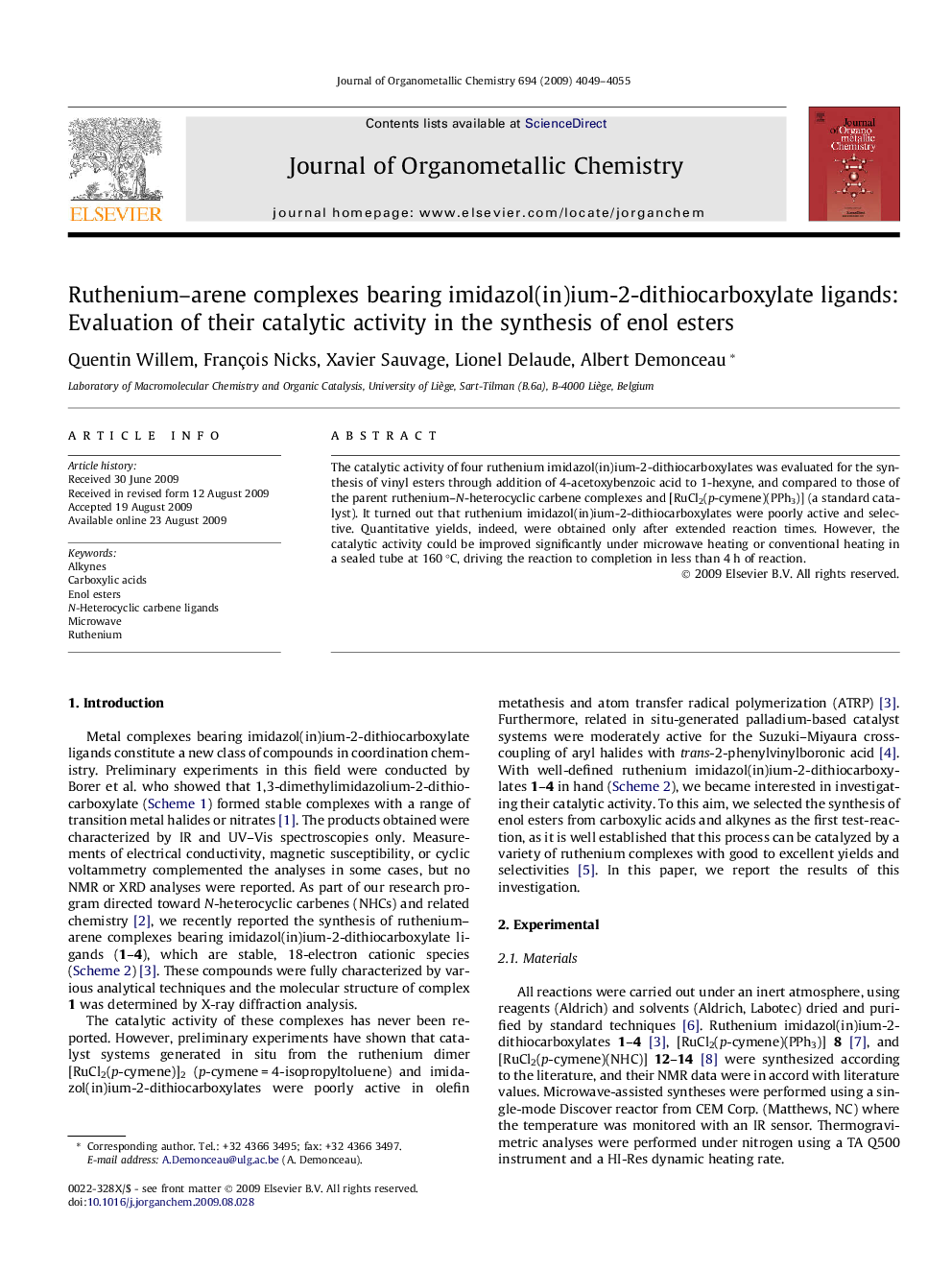| Article ID | Journal | Published Year | Pages | File Type |
|---|---|---|---|---|
| 1324368 | Journal of Organometallic Chemistry | 2009 | 7 Pages |
The catalytic activity of four ruthenium imidazol(in)ium-2-dithiocarboxylates was evaluated for the synthesis of vinyl esters through addition of 4-acetoxybenzoic acid to 1-hexyne, and compared to those of the parent ruthenium–N-heterocyclic carbene complexes and [RuCl2(p-cymene)(PPh3)] (a standard catalyst). It turned out that ruthenium imidazol(in)ium-2-dithiocarboxylates were poorly active and selective. Quantitative yields, indeed, were obtained only after extended reaction times. However, the catalytic activity could be improved significantly under microwave heating or conventional heating in a sealed tube at 160 °C, driving the reaction to completion in less than 4 h of reaction.
Graphical abstractRuthenium–arene complexes bearing imidazol(in)ium-2-dithiocarboxylate ligands catalyze the synthesis of enol esters from carboxylic acid and terminal alkynes. The catalytic activity was improved significantly under microwave heating or conventional heating in a sealed tube at 160 °C, driving the reaction to completion in less than 4 h of reaction.Figure optionsDownload full-size imageDownload as PowerPoint slide
